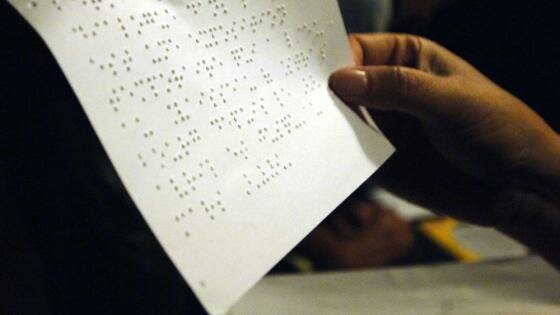- EYCSEducation, Youth, Culture & Sport (EYCS)
Greek Presidency signs Marrakesh Treaty on behalf of the EU
The European Union signed, on 30 April 2014, in Geneva the Marrakesh Treaty. The Treaty will facilitate access to published works for persons who are blind, visually impaired or otherwise print disabled. It had been negotiated in the framework of the World Intellectual Property Organization (WIPO). Negotiations concluded on 28 June 2013 in Marrakesh. Since then fifty-one states have signed the Treaty, including four EU Member States.
Today, the Greek Presidency of the Council of the European Union, represented by the Ambassador of Greece to the UN in Geneva, Alexandros Alexandris, signed the Treaty on behalf of the European Union, in the presence of WIPO Director General Francis Gurry, the Head of the EU Delegation to the UN in Geneva, Mariangela Zappia, the Executive Director of the European Blind Union Mokrane Boussaid and the Secretary General of the International Publishers Association Jens Bammel. The Treaty was also signed by France, Greece and India during the same event.
EU Ambassador Mariangela Zappia said in her remarks at the signing ceremony that facilitating access to books was indispensable to make progress towards equal opportunities for print-disabled persons in society: "The Marrakesh Treaty will contribute to this progress in Europe and in many countries around the globe."
Irini Stamatoudi, Director General to the Hellenic Copyright Organisation in her speech referred to the fact that the Presidency “has put its best endeavours to have the decision of the signing of the Marrakesh Treaty by the EU adopted as soon as possible and we succeeded in this goal”. She also stressed that “we want to convey a strong message that we want this Treaty to work and serve its original purpose”.
The Marrakesh Treaty will - for the first time at international level - make access to books in special formats easier for visually impaired and print disabled persons, while respecting international copyright law norms. The Treaty creates a mandatory exception to copyright that allows organisations for blind people to produce, distribute and make available accessible format copies to visually impaired persons without the authorisation of the right holder. The Treaty will enter into force after ratification by twenty states.
The European Union has been instrumental in pushing the Treaty forward. EU Commissioner Barnier at the time of the adoption hailed the Treaty as a great success: "Finally, the visually impaired and print-disabled community will be able to have access to the same books as other people".
According to the World Blind Union there are an estimated 285 million blind and partially sighted people living worldwide, most of them in developing countries, and they can only access 5% of the world's books. The Marrakesh Treaty will also make it possible to export accessible format copies to other states party to the Treaty and will thus increase the availability of special formats all around the world.








